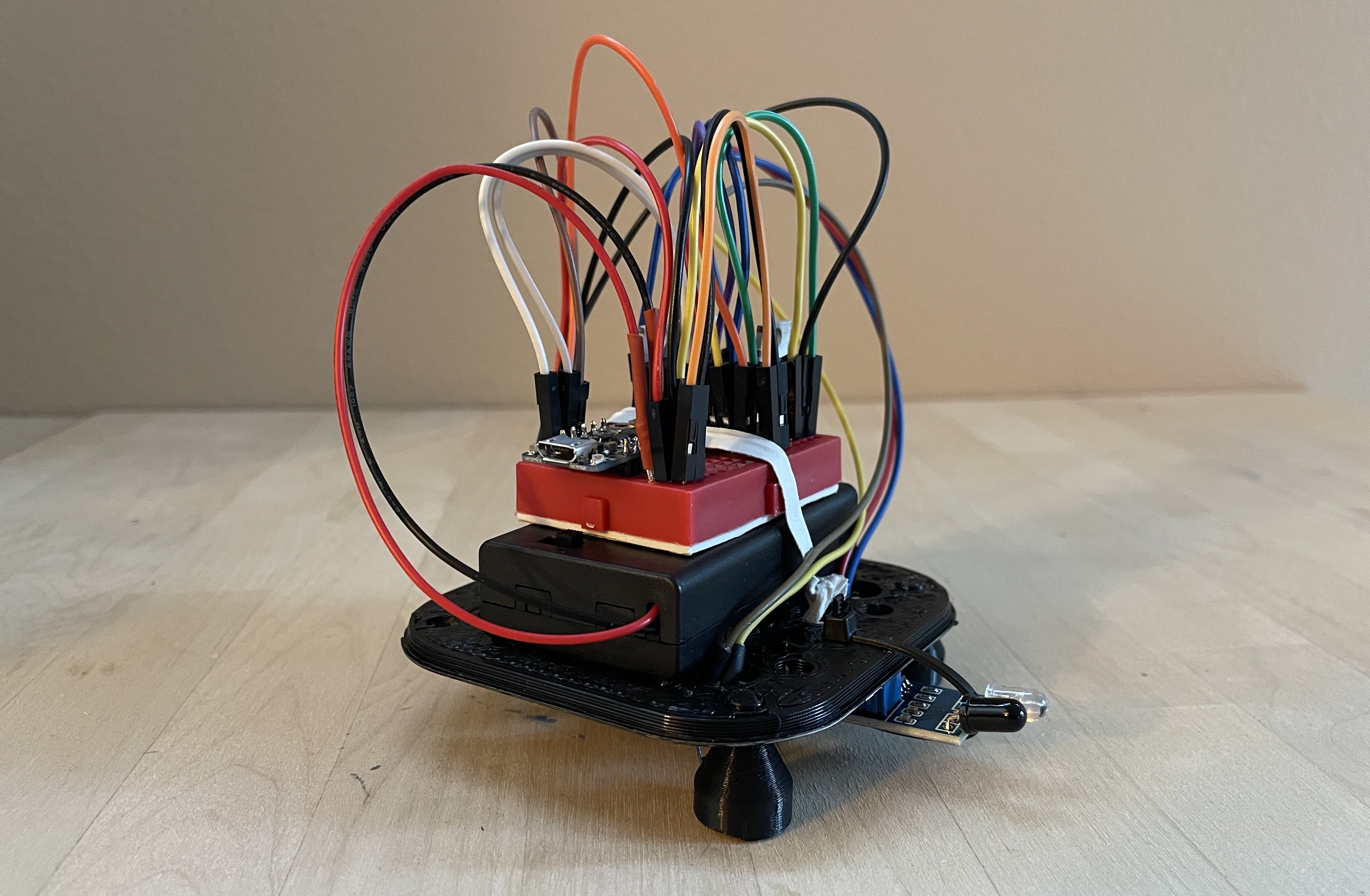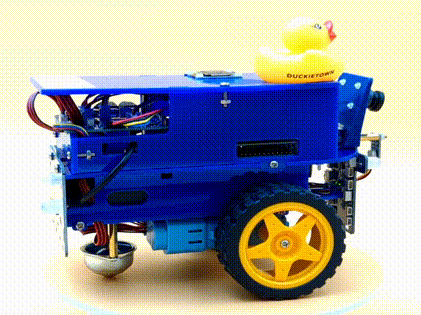Overview
Though robots themselves have been consistently getting cheaper, more available, and easier to use in recent years, robotics research and development (as presented at RSS and similar conferences) has conversely become less accessible with higher costs and infrastructure dependencies. In this workshop, we bring together roboticists and stakeholders interested in broadening the demographics of those who contribute to robotics research. We will discuss ongoing and upcoming efforts towards lowering barriers to participation, converging on key action items—individually and for the community as a whole—that can increase access to robotic creation.
Mission
Robots of the future should be built by, reflect, work with and support all humans, not just a select few. Creating such a diverse robot pantheon starts with improving access to ongoing robotics research and discourse today. We can do this by identifying various barriers, including cost, thinking about and championing approaches that challenge our existing notions of what counts as acceptable/relevant robotics research, and ensuring that adjacents fields from education to manufacturing to health are interested in a robotics future for all. This workshop focuses on these goals.
Keynotes
Ken Goldberg

UC Berkeley
Ken Goldberg is the William S. Floyd Distinguished Chair in Engineering at UC Berkeley and an award-winning roboticist, filmmaker, artist and popular public speaker on AI and robotics. Ken trains the next generation of researchers and entrepreneurs in his research lab at UC Berkeley; he has published over 300 papers, 3 books, and holds 9 US Patents. He is the co-founder of the African Robotics Network(AFRON) which seeks to champion and support the development of robotics on the African continent through affordable robotics kits, robotic competitions and interconnected network of roboticists across the continent.Expanding Access to Robots for Education and Research
Today, most robots are like personal computers were in the 1980s: expensive and isolated systems with limited software, computation, and memory. This is changing with “Cloud Robotics”, where robots are connected and available via the Internet and 5G networks. I’ll describe our work on FogROS2, a networked systems that facilitates access, rapid deployment, automated software updates, distributed data collection, and deep learning to continously improve performance. I will also tell the surprising story about the the African Robotics Network and the Ultra-Affordable Robot Design Challenge.
Nia Jetter

Sr. Principal Technologist, Amazon Global Robotics
Nia Jetter is an executive level engineer who is passionate about changing the world through innovation, technology planning, teaching, mentoring and solving tough problems in Autonomy and AI that can be applied across different platforms. She has a dedicated focus on helping people who may not have easy access to educational materials to understand topics like artificial intelligence. Nia is enthusiastic about working the human-AI interface as artificial intelligence is further integrated into our society.
Nia is an Aerospace Engineer who has 20 years of experience in the Aerospace Industry and has had impact on a variety of programs across the product-lifecycle from innovation, design and development to mission and anomaly resolution and through customer delivery and support. In January 2021, Nia left the aerospace industry as a Technical Fellow to join Amazon as a Senior Principal Technologist for Robotics. In this role she is building a foundation in how robots safely collaborate with people through innovation and technology development for autonomy, as well as through strategic planning for robotics and other critical autonomous applications.
Nia has a bachelor’s degree in math with computer science and a minor in earth atmospheric and planetary sciences from MIT as well as a master’s degree in aeronautical and astronautical engineering from Stanford. Nia enjoys reading (especially science fiction), astronomy, baking, travelling, dancing and creating short videos that break down complex topics like AI and explains them simply for her YouTube channel (Thinque Bytes). For more information, please see her website: https://www.niajetter.com.Exposure Matters - A journey through Aerospace to Robotics
Amazon Robotics has successfully deployed more than 750,000 robots into production. In many ways this is laying the foundation for how mobile robots that are highly collaborative with people will evolve and be deployed into society. A next step in advancing the field of Autonomous Mobile Robots is the deployment of robots that safely exist in an unstructured environment - in an environment where robots move in free space amongst people. As we proceed it is critical that we work to solve both technical and inclusion challenges that will allow us to meet the needs of our customers. This talk will cover a framework for building and deploying robots in an unstructured environment in addition to sharing mechanisms that have been deployed by Amazon and by personally by Nia to provide exposure, and increase inclusion and accessibility
Robotics kits
Vibration Motor-based Robot Kits as a Foundation for Basic Mechatronics Skills

REMS: Robotics Educational Middleware system

Duckietown*

FlowIO / the Soft Robotics Toolkit
Workshop schedule
- 1:30-1:45pm : Introduction and discussion of expected outcomes
- 1:45-2:15pm : Keynote 1: Ken Goldberg, UC Berkeley
Expanding Access to Robots for Education and Research
Today, most robots are like personal computers were in the 1980s: expensive and isolated systems with limited software, computation, and memory. This is changing with “Cloud Robotics”, where robots are connected and available via the Internet and 5G networks. I’ll describe our work on FogROS2, a networked systems that facilitates access, rapid deployment, automated software updates, distributed data collection, and deep learning to continously improve performance. I will also tell the surprising story about the the African Robotics Network and the Ultra-Affordable Robot Design Challenge.
- 2:15-3:00pm : 🤖 Introduction to kits/activities by their designers (10min); and 🪧 poster blitzes (1min)
- 🤖 Jacopo Tani: Duckietown
- 🪧 Brian Plancher: Tiny Robot Learning: Expanding Access to Edge ML as a Step Towards Accessible Robotics
- 🤖 Yusuke Tanaka and Ankur Mehta: REMS: Robotics Educational Middleware system
- 🪧 Emil Rofors: Gamified robotics in outreach activities
- 🤖 Alix Partridge: Lowering Barriers for Robotics Research: Soft Robotics
- 🪧 Andrew Thompson, Michele Lee, Larisa YC Loke, Brian Martinez, Mahdieh Nejati Javaremi, and Brenna Argall: Identifying Accessibility Barriers to Robotics Research
- 🤖 Naomi Fitter: Vibration Motor-based Robot Kits as a Foundation for Basic Mechatronics Skills
- 3:00-4:00pm : Kit playtesting / Poster session / coffee break
- 4:00-4:30pm : Analysis / discussion of kit experience by users
- 4:30-5:00pm : Keynote 2: Nia Jetter, Sr. Principal Technologist, Amazon Global Robotics
Exposure Matters - A journey through Aerospace to Robotics
Amazon Robotics has successfully deployed more than 750,000 robots into production. In many ways this is laying the foundation for how mobile robots that are highly collaborative with people will evolve and be deployed into society. A next step in advancing the field of Autonomous Mobile Robots is the deployment of robots that safely exist in an unstructured environment - in an environment where robots move in free space amongst people. As we proceed it is critical that we work to solve both technical and inclusion challenges that will allow us to meet the needs of our customers. This talk will cover a framework for building and deploying robots in an unstructured environment in addition to sharing mechanisms that have been deployed by Amazon and by personally by Nia to provide exposure, and increase inclusion and accessibility
- 5:00-5:45pm : Panel on challenges to broadening participation
- 5:45-6:00pm : Wrapup with resolution for action items